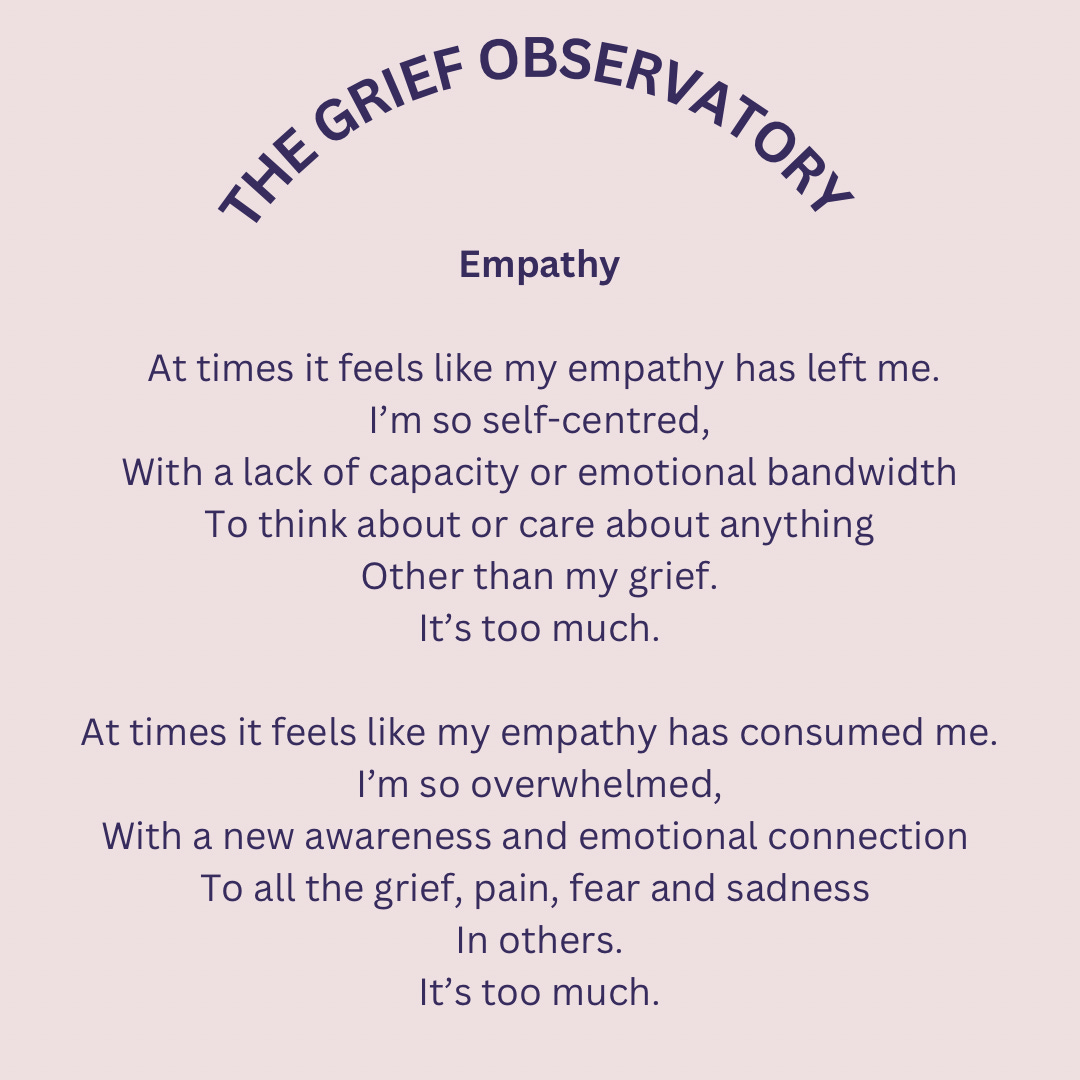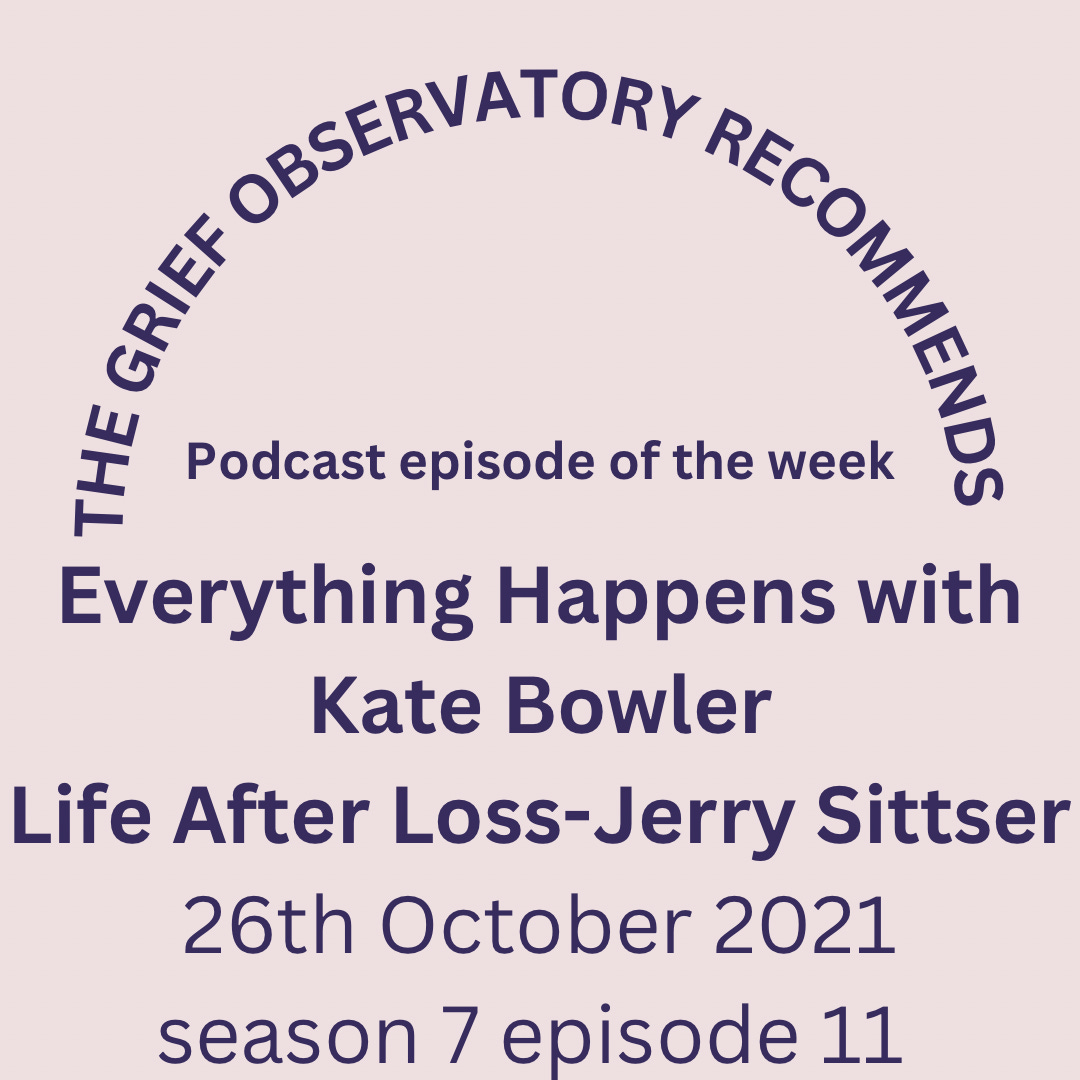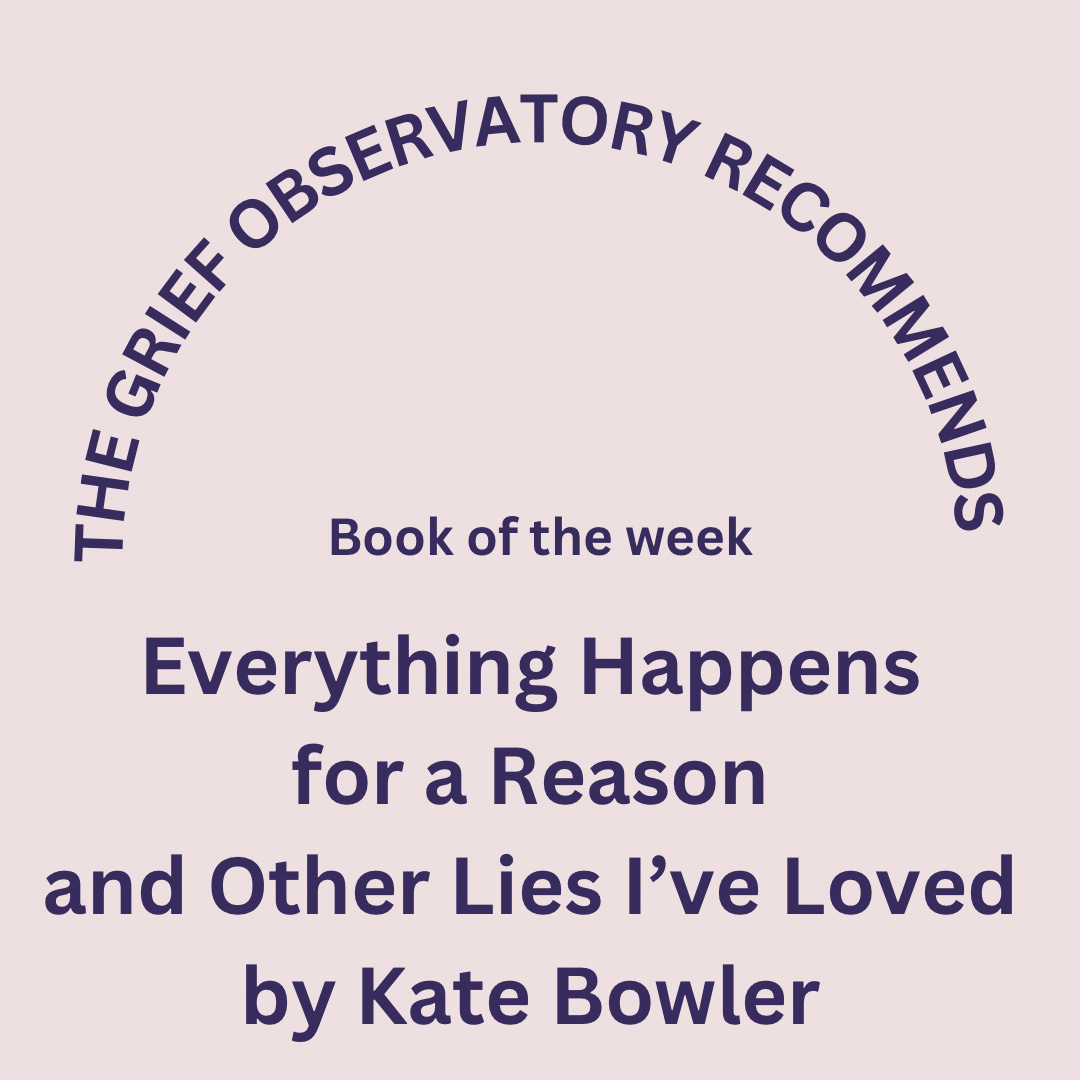When my daughter died I joined an online grief support group, thinking that there would be some comfort in being in a space with others who were grieving too. In the first session I remember listening to a widow explain through tears the difficult few years she had gone through supporting her husband through cancer before he died and then getting upset when the first thing the next griever said was “Well at least you knew he was going to die. You had time to prepare for it. My husband died from a heart attack and it was such a shock.” I soon realised this was not the group for me. If everyone in the group was in the raw early stage of grief, our own losses were so overwhelming that there was little energy left to support anyone else with their pain, or to even acknowledge that someone else could possibly be facing a loss as tragic as our own. Kate Bowler calls this the Tragedy Olympics, where people try and do comparison maths in a bizarre competition as to who has the biggest loss and “don’t always realize that it’s not actually a game. It’s just life, and we are all, for better or worse, players who need each other more than we need an award.”
I think its completely natural for our grief to feel that all-encompassing, especially in the beginning. As Shanua Niequist writes in I Guess I Haven’t Learnt That Yet;
“For a while, what you’ve suffered is the biggest thing you can imagine. In your pain and suffering, you twist reality around your own wound and you see the whole world through the lens of your pain. For a time, what you’re facing really is the biggest, ugliest, cruelest thing that anyone could ever be allowed to experience. And then over time, as you fight to heal, as you move forward, one foot in front of the other over and over again, you begin once again to see other people’s losses as weighty and real—as real, even, as what you’ve lost. This is good. This is healing. Your pain is being rightsized—still real and still tender and still awful, but not the biggest, hardest thing in all the world. You start to have the emotional energy to offer to other people in empathy, seeing what they’re carrying instead of hoarding up all your resources for the cavern of your own loss.”
Over time, being in the grief club means you have a lived awareness, rather than just a theoretical concept, that shit things sometimes happen for no explainable reason and the world is full of pain and suffering for so many. The news headlines hurt in a way they had never previously resonated, with a sudden empathy for strangers who you would have never given any consideration to before. The pain of friends who are grieving or going through difficulties of any kind is felt more viscerally, although that hasn’t made me any more able to support others. This also comes with guilt for all those who have previously gone through grief and I left them to it, feeling like someone else would be better equipped to help them, or just not knowing what to say.
Although, to be honest, I feel stuck in limbo on this at the moment, trapped in a paradox of being more fully aware of the pain of others but not yet having the emotional capacity to offer much support to anyone else when working on my own healing sometimes still feels like a full time job.
A year ago I wrote this short poem, and it still sums up how I feel
As Kate Bowler writes in Everything Happens for a Reason and Other Lies I've Loved;
“My own suffering began to feel like it had revealed to me the suffering of others, a world of those who, like me, are stumbling in the debris of dreams they thought they were entitled to and plans they didn’t realize they had made.”
I hope that in its own little way, this newsletter can be my way of supporting others who are suffering, and it isn’t just for those who have experienced child loss, or even grief. In a culture where healing usually means getting back to normal or how things were before, grief is just one example of how a life can be changed irreversibly and will never be what it was. Many of you reading this are living a life unimaginable from the one you had planned, whether through child loss, grief, miscarriage, chronic illness, not having children when you wanted them, divorce, job loss or supporting a child with a medical condition. I can’t do much, but I feel your pain and you are welcome here.
It’s natural to offer support by sharing our own personal experiences, and I have lost count of the number of friends who have said “I know it’s not the same but…” or “I know it’s not as bad as your experience but….” I always try and stop them at this point to tell them that they don’t need to belittle their grief or experiences in order to recognise my suffering when they share their pain. All grief hurts, and who am I try and claim the gold medal in the grief Olympics? As Jerry Sittser says in the podcast Everything Happens with Kate Bowler, season seven, episode 11;
“That’s why I want to take everybody with absolute seriousness and not fall into that game of whose loss is worse... My experience was a big experience. So the natural thing for everyone to say is something like, “I can’t imagine,” which is obviously true enough. They can’t imagine it…Each loss is uniquely its own, and I think it’s important for us to acknowledge that and then go from there…don’t think mine’s worse, please don’t do that to me. Don’t create a special category of nightmare. They’re all bad. They’re all bad.”
Further Resources and Recommendations
As you can probably tell, Kate Bowler is one of my favourite authors and podcasters. In this episode she interviews Jerry Sittser about life after loss.
In this book Kate Bowler writes about her diagnosis with stage four cancer and it ends with a great appendix entitled Absolutely Never Say This to People Experiencing Terrible Times.







Your references to Kate Bowler’s writings reminds me very much of Megan Devine’s concepts on learning to carry the grief we’re experiencing rather than getting over it or rid of it. She offers “grief support that doesn’t suck” at refugeingrief.com, if you’re interested. I find her work helpful. In my early grief (my daughter also died), I had a similar experience of not finding comfort with other early grievers. Thanks for sharing your experiences here. I’m going to do something similar, so you’ll probably hear from me again!